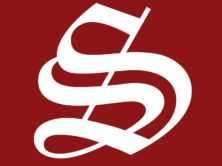(Credit: Best Practices)
Australian journalism professor Lawrie Zion set up a blog on “Best Practices” to host “best practices initiatives” like accuracy for online media, Journalism.co.uk reported. Zion “said he hopes the new blog will be a ‘framing device for journalism ethics as to what’s the best way to do something,'” according to Journalism.co.uk.
We wrote to Zion, who is a professor at Australia’s LaTrobe University, asking for more information about this project. He told us that right now, he’s the “main blogger” for Best Practices, but that he plans to include “guest posts and interviews.” He added: “I’m also keen for the blog to develop into a discussion forum involving journalists, journalism educators and researchers and students. One of the main aims is that the site will evolve to become a resource for emerging journalists.”
We asked Zion about what ethical issues he sees as in need of best practices. Some issues Zion highlighted included: “curating user-generated content,” online comments, errors and corrections, and fact checking. He added:
“In many other cases the ethical principles might be the same as they always have been – errors must be corrected, facts must be verified, sources must be acknowledged – but precisely how these principles are best realised isn’t always straightforward, especially in a 24/7 publishing environment.”
Zion called for these best practices issues to be “developed outside of the newsroom” to help all publishers “navigate their way through these issues.” Check out his blog here.
Zion also pointed to his paper “‘Best Practices’ in the Journalism Ethics Frame: A Comparative Study,” presented in April at the International Symposium on Online Journalism. His paper, see here, notably differentiates between the generic term “best practices” — which he noted is “sometimes used..more with efficiency and expediency” in mind — and more specific “best practices” with respect to ethics.






